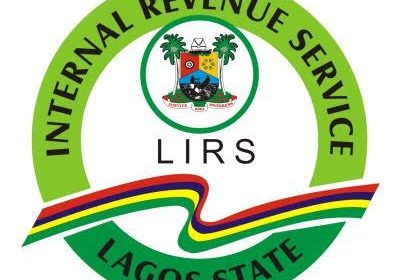Stringent rules impair pension funds investment
Accumulated Pension fund assets under the Contributory Pension Scheme (CPS) in the third quarter of 2015 hit N5.3 trillion. Consequently, NGOZI ONYEAKUSI reports that seven months after release of the guideline for the funds investment, no potential investor has so far benefited from the proposed investment. This is in spite of pressures from operators for the funds to be invested for infrastructure development.
The Federal Government last year, under the former Minister for Finance Dr. Ngozi Okonjo-Iweala indicated interest to invest part of the accumulated pension funds for infrastructure development.
As a follow up to that, the National Pension Commission PenCom in April this year released a fresh guideline for the investment which made provision for 15 per cent of the funds to be invested in infrastructure through infrastructure bonds and another five per cent through infrastructure funds.
The commission, aside from bowing to the yearnings of Pension Fund Administrators (PFAs) and other experts who argued that such fund is used to abridge infrastructural gaps in other jurisdictions, deemed the investment necessary following infrastructure deficit a cross the country.
“The dearth of adequate infrastructure, not only in Nigeria but across the African continent, has remained a clog in economic development. These concerns defined the imperative of pension funds, as long-term patient capital, to play a role in infrastructure investments.
The present administration has identified the provision of infrastructure as a key focus area and significant steps to encourage structured initiatives”, said the Director General, PenCom, Chinelo Anohu-Amazu.
Unfortunately, the guideline appeared so stringent that seven months after its release, no aspiring investor has met up with the needed requirements. Strict adherence to the guideline, pension funds operators said, remained paramount to ensure safety of the funds. According to the Pension Funds Operators Association of Nigeria (PenOp), “Whoever, the funds managers may be, must meet up with the investment guideline. There are various laws that are being reviewed now, concerning the investment, so unless they meet all the necessary conditions, pension funds will not be invested in them, said the Executive Secretary, PenOp, Susan Oranye.
Nevertheless, experts have continued to call on the commission to ensure that the fund is invested so as to curb corruption as well as promote national growth and development.
According to the Managing Director, Risk Guard Africa, Dr Yemi Soladoye who regretted that pension funds which ought to be invested five years ago, was still under consideration until April this year, called for quick investment of the funds to ensure maximum returns to contributors and the nation.
“Such funds like pension, insurance funds are actually meant to stimulate the active growth of other sectors of the economy and to contribute to the growth of national development of which infrastructure, possibly mortgage are prominent.
The essential thing PenCom is supposed to do, it has done it, number one to make sure that security of the fund is not jeopardized and going into aspect of infrastructure and mortgage in order to achieve a goal of diversification in the investment of the pension funds.
Investment Guideline
PenCom, in the investment guideline stated that as much as 15 per cent of the total value of pension fund assets under management could be invested in infrastructure through Infrastructure Bonds and another 5 per cent through Infrastructure Funds. Both outlets must meet the conditions for the investment of pension funds before the Pension Fund Administrators could channel the funds into such investments.
The commission noted that section 5.2.3 of the draft regulation on investment of pension fund assets provided that pension assets could be invested in infrastructure projects through eligible bonds, subject to two major conditions.
“The infrastructure project shall be not less than N5bn in value and awarded to a concessionaire with good track record through an open and transparent bidding process in accordance with the due process requirements set out in the Infrastructure Concession and Regulatory Commission Act and any regulation made pursuant thereto, and certified by the Infrastructure Concession and Regulatory Commission and approved by the Federal Executive Council,” it stated.
Another condition for the investment is that the projects must have business plans and financial projections that indicate they are viable as well as economically and financially rewarding for investment by pension funds.
According to the commission, the bonds or Sukuks issued to finance the infrastructure project shall have robust credit enhancements including guarantees by the Federal Government or eligible bank/development finance institution or MDFOs and a maturity date that precedes the expiration of the concession.
Consequently, he further emphasized the need for the investment. “I am saying that they should have done the investment five years ago. Just think about this, if somebody joined service at age of 25 and the person is set to retire at the age of 60, now the person is going to contribute for 35 years without having access to that fund, so benefit of that fund is that we use part of that fund in interim for project of national development. And it is also a way of making sure there is sufficient fund for the contributors of the pension funds at the time of retirement other wise we really fine ourselves in a position where terminal benefits that is the amount in the Retirement Savings Account (RSA) will not be sufficient to carry some people blessed with longevity till the time of death. So it is an investment opportunity for the pension funds”, he assured.
Contributing, the Managing Director, Enterprise Trust Insurance Brokers Limited, Mr Paschal Egerue spoke on the quality of the investment. “The investment should be an investment that would give value to the people, it should be an investment that will have returns on investment over time. The pension funds is not to be given to people or for charity. If it is invested in road construction for instance, the road should have toll gate here and there, over time, it will pay its way, if it is invested in railway, or telecoms over time they will pay their ways. But if it is invested in recurrent expenses of the government, you are treating the funds away, and at the end of the day, there will be no money coming back.
Pension Funds safety
According Anohu-Amazu discussions were ongoing with both the public and private sectors on efficient infrastructure initiatives. However, “we must be clear that the accumulated pool of pension funds belong to individual contributors.
The system in place is such that every Naira of that pool can be ascribed to an RSA. The funds are unitized, daily values determined and daily reports rendered to PenCom as the investments must comply with the investment regulations.
The regulation was drawn with in-built risk mitigation tools in order to primarily ensure safety and fair returns on the assets. I highlighted the foregoing to buttress the level of accountability with which the funds are managed and the nature of investments allowed.
Again, there are liquidity considerations due to the reality that contributors retire on a daily basis, thus, an appropriate investment mix to ensure that obligations are met must be attained”, said PenCom DG.
Pensioners/ Contributors views
Unarguably, Nigerian pensioners and contributors were aggrieved on government plans to invest pension funds for infrastructure development. Their plight remained fear over safety of the funds giving the level of corruption in the system.
A pensioner, Mr Boniface Okezie, has this to say, “If they are investing the pension funds in infrastructure and when people who own the money, come to collect it, will government be able to pay back it back? you don’t dabble into such.
What the government should be doing is investing these monies where it will be yielding returns, some people own this money, the retirees, the pensioners they must have their money to enjoy lives when they are still leaving, not infrastructure that is not going to bring earnings to them, government should provide infrastructure, ordinary road the government is not constructing. How can they fall back on pension funds? its totally wrong”, he stated.
On her part, Winifred Bosa, a contributor urged the government to use its revenue for the purpose. “I am saving that money for my future, to get it when I need it. With the level of corruption in this country no one is trusted that the funds will pass through that investment and still come out secured”, she warned.
Reacting to the above, Soladoye who called for education of pensioners stated; “This is purely ignorance, one of the major problems we have in this country is that most people do not have financial education and literacy. In as much as the fund is expended in the area of government bond, treasury bills, especially government bond that have long term gestation, what is the problem there, the biggest security in this country is the government by the time you lend money to the government, it is the most secured, he assured.
Pension funds; industry growth driver
Obviously, the Pension industry in the recent past has witnessed tremendous growth and there are indications that it will maintain the tempo. According to Anohu-Amazu, the sectors huge investible fund has remained a major growth catalyst. “The industry has been growing at 25% over the past nine years, it’s outlook gives an expectation that this rate will at least be maintained, regardless of the economic down turn occasioned by falling oil prices and the national infrastructure deficit. This huge investible fund is a potential game changer and a key growth driver if securely and profitably invested.
The industry within the third quarter made a lot of progress as subscribers attracted to the CPS grew to 6.74 million from inception 11 years ago. Equally, number of contributors with Retirement Savings Accounts rose from 5.78 million to 6.26 million between 2013 and 2014, and 6.74 million by the third quarter of this year. According to PenCom, the number of employees who had opened their individual RSAs rose to 4.41 million, 4.82 million and 5.27 million by the end of 2010, 2011 and 2012, respectively.
Culled from Fortunes Magazine






Leave a Reply